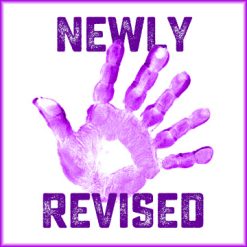|
INDUSTRY Should The Internet Be A 'Public Utility'? Comment On FCC Proposal - It Affects You February 9, 2015  By James Alburger By James AlburgerProducer & Voice Over Coach The Internet is a huge part of our daily lives. As voice talent, it is also a critical part of our business. This coming February 26, the FCC will be voting on a proposal for "Net Neutrality" - a vote that could reclassify Internet Providers as Public Utilities under Title II of the Telecommunications Act. This is a hot topic because it is something that will not only affect us on many levels, but it is also something that is easily misunderstood. On one side are those who feel Net Neutrality will put controls and constraints on the big Internet providers like Verizon, Comcast, AT&T, and Time Warner. On the other side are those who believe that Net Neutrality is little more than a power grab by the government to take control of the Internet. FUNDAMENTAL CHANGE Although the proposal to be voted on implies that there will be no taxes or fees associated with Net Neutrality, the simple fact is that, if passed, the proposal will reclassify the Internet as a Public Utility - and that will fundamentally change the way in which the Internet is managed. In 2010, the FCC enacted rules designed to maintain an Open Internet. Reclassification of the Internet would change that and could possibly open the door to future changes that might include fees and taxation. At the very least, reclassification would put the Internet in the U.S. directly under governmental control. Whatever your personal opinion may be regarding Net Neutrality, we feel that it is important for you to know what is about to happen and for you to voice your opinion clearly and concisely. You can click these links to the FCC website that include:
Should you decide to post your own comments, we encourage you to be as clear and concise with your statement as possible, providing reasons and explanation when necessary. After all, your comment will be part of the Public Record for this matter. As an industry that requires an accessible Internet, we have an opportunity here to influence the FCC in their decision - one way or the other. If you feel, as we do, that this is an important issue for those of us working in voice over, I encourage you to please share this information on your Facebook page and with your networking groups. Editor's note: Below is James Alburger's comment to the FCC: As with most government regulations or agency orders, there is both good and bad. The proposal by FCC Chairman Wheeler (to be voted on by the FCC on Feb. 26, 2015) definitely includes some very good things that will insure that the Internet is Open, such as a promise of no taxes or fees, among other things.------------------------- ABOUT JAMES James Alburger is an Emmy-winning producer and voice over coach, co-director of the VoiceActing Academy in San Diego, and co-producer of the VOICE conventions - the industry's largest training and networking event. Email: info@voiceacting.com Web: www.voiceacting.com |
As of the NEW website launch, 03/22/2012







.png)


Tumblr has published a very clear FAQ that explains the situation in no uncertain terms:
https://www.tumblr.com/everybodyontheinternet
The government doesn't want to control the internet; they want to protect it and keep it free and neutral.
In an article from an interview with Nebraska Senator Ben Sasse calling the term “misleading,” he told Americans to see what’s really going on: the creation of a new Department of the Internet.
“This is a government bureaucracy in search of being an Orwellian solution for problems that don’t exist,” Sasse said. “The Federal Trade Commission already has laws that would prohibit the things they say they’re trying to guard against. Contact your congressman and senators and tell them that if there’s a debate that should be had about the governance of the Internet, it should be had in the legislature, not in unaccountable … permanent bureaucracies.”
Sasse compared net neutrality to the “Fairness Doctrine,” which required broadcasters to broadcast different viewpoints on controversial issues. Many have claimed a revived “Fairness Doctrine” would target conservative talk radio.
“We’ve never had this in the past on the Internet, and it is a dangerous place,” Sasse added.
Yes, this is an issue for every voice actor because we all are dependent on reliable, fast internet for our work. However I think we should be acting in favor and not against this action. I'm not usually an advocate for more government intervention, but I'd rather the government than Comcast and TWC.
The truth is that wherever a viable 2nd or 3rd party broadband service has shown up there is better service for less money. Of course cable companies obfucate this by not giving clear pricing city to city and state to state, but if you start entering zip codes where Google Fiber or municipal fiber is offered and compare that to places where it is not, you'll see a noticeable difference.
The same companies bemoaning Title II classification already use it (locally, mind you) and other government regulations to get special rights and privileges. They also actively fight competition through lawsuits and petitions. They have quite literally driven the government to take this action. Would I rather there was a competitive marketplace? Yes. But since we've allowed these companies to establish abusive monopolies and act as public utilities we need to start regulated them as such.
The greater danger, as I see it, is that, free of regulation, these companies will create a two-tiered system - higher speed service for companies who can afford to pay for it, and slower service for individual customers like you and me. They're in the business to make money, and will oppose any government infringement on their bottom line. The proposed merger is part of their overall strategy to maximize profits from the web, which belongs, by right, to the people. It should therefore remain free, as you say, and most importantly, equitable access should be guanteed and protected by our government.
Best regards,
John Haag